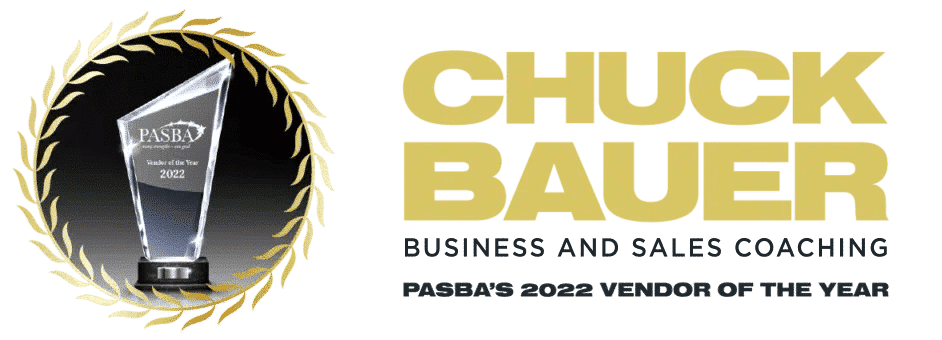What Causes a Client to Say “NO”?
Lucky. Yes, lucky. I am lucky that on a regular basis, I get to hear various communications between salespeople and their clients. I remain amazed at how as salespeople we sometimes do not realize how our actions affect the client-salesperson relationship, especially in moving us towards or away from closure.
I walk by a salesperson’s office and hear him comment as he concludes a phone call: “I’ll call you back in a few weeks.” This comment sends me straight up the flag pole and if you are a sales manager reading this, it had better send you up the pole as well!
Imagine for a moment you are the client who just heard “I’ll call you back in a few weeks.” Consider you might be thinking about that salesperson—and the product and company! What are you thinking? Are you really being drawn to the salesperson? Do you think that the salesperson does not care about selling, really?
I came up with these possibilities:
- The salesperson is not busy.
- The salesperson is just like the rest of em’.
- The salesperson has nothing better to do than to leave our conversation in a fog bank.
- The salesperson does not really believe in his product or company.
- The salesperson thinks that I don’t have any other obligations and can talk anytime.
I could go on and on with this, but I will spare you all the other thoughts that might be creating objections and—perhaps worse!—indifference in a client’s mind.
Remember the three reasons why salespeople are given a “NO.”
- The client does not like you.
- You did not explain your product, company, or yourself correctly.
- Something in your delivery triggered a negative past experience for the client.
Ending a communication with “I’ll call you back in a few weeks” hits on #1 and #3.
When the client does not like the salesperson, more than likely it is because the salesperson does not MAKE an effort to be liked, and ends up being seen as stereotypical . . . and in this case, the stereotype is negative! The wishy-washy “I’ll call you back in a few weeks” also triggers a negative stereotype and this time from memories of a negative experience. Anything that that hits on #1 or #3 has the potential for losing a sale—even if the product is something that the client likes, wants, or was planning to purchase anyway.
There are easy sales tactics to prevent the client from saying “NO.”
Sales Tactic #1:
Always have a predisposed P.O.A.–a plan of attack with precise steps to take. If you end ANY client communication without a clear and defined next step, you lose. Calling back in a few weeks is NOT a clear and defined next step. Don’t leave the next step formulaic: base it on what you have learned about the client’s personality during your conversation.
Sales Tactic #2:
Always preach to your client that you are BUSY and you know they are too. If you speak this type of phrasing in the course of your client communication, you KILL THEIR FEAR of you lollygagging around because you have nothing better to do.
Example: “Mister client, I know you are as busy as I am so let’s respect each other’s time commitments and schedule an exact time for our follow up phone call/appointment. I have Tuesday the 14th open at 1:30 p.m. My next available time is Thursday the 16th at 9:30 a.m. Which works better for you?”
Example:
Another great example of this is to STOP answering your phone on the first ring! WHAT?! Are you just sitting there waiting for a client to call you? You are better off not answering the phone and calling back after a few minutes. This tactic applies to your cell phones as well. BUSY salespeople do not answer the phone on the first ring—they are TOO BUSY! You want to be chased, not to do the chasing, and answering the phone on the first ring gives the impression that you’re chasing!
Sales Tactic #3:
Use Microsoft Outlook to put the scheduled appointment into your calendar and send an e-mail invite that will PROPAGATE the client’s Outlook calendar. There is nothing like being SALES PRECISE with your clients, a sales attraction skill that most salespeople lack! This skill is easy to master: just propagate your Outlook Calendar with the significant information about the appointment or phone call, click “Invite Attendees” on the top navigation bar, add their e-mail address, and click “Send”! That way the client will know that you are serious about talking with them and won’t leave them in a fog bank!
Remember, Outlook is a great tool for external communication because most people use it. Other programs such as Goldmine or Act are usually efficient for internal communication, but for external communication, use Microsoft Outlook.
Sales Tactic #4:
Understand JEOPARDY. That’s correct: J E O P A R D Y. Jeopardy is defined this way—from the last point of contact with your client until they are brought to conclusion (meaning a “yes” or “no” to your product or service) you are in JEOPARDY of losing that sale to a competitor. You had better instigate some immediate, distinctive follow up steps to throw glue on that client and build a competitor-proof wall around them. As always, an immediate follow up to your phone call or appointment is a must. For great sales distinctive ideas on follow up, read this article titled T.I.P.S – To Insure Prompt Sales!
Sales Tactic #5:
STOP right now being lackadaisical in your communication. Use and create URGENCY with your clients and prospects.
REAL EXAMPLE: Notice where the student adds urgency…
Communication to the Client from the Student:
“I am extremely busy, and know you are as well. Looking to get five minutes max of your time to discuss whether or not you still want (the product), invoicing options, as well as the extra service at no additional cost. Rumor has it our Fast Start promotion will end here this Friday. My greatest fear is that you’ll delay reading this e-mail or getting back to me until next week and by then we will have missed the cut-off date to help stretch your company’s value by 58%, not to mention losing Fast Start’s delayed invoicing program until the end of this year.”
Client’s Response:
“Yes, I have been ignoring you. My silence is not a negotiation tactic; I’ve just been swamped. I am still interested in (the product). I only have one question before we move forward. Can the payments be made on a quarterly basis, as opposed to all up front?”
Student’s Response:
“Again, quarterly billing is not a problem; we’ll add a 6% premium—what many of my clients are opting for is the delay of their invoice until December and leverage 2008’s budget in January to receive their knowledgebase for nearly two years at the price of one.”
Client’s Final Response:
“Sold. Call Me!”
Student’s COMMUNICATION scorecard:
- Extremely busy
- Know you are as well
- Five minutes max
- Still want
- Extra service at no cost
- Will end on Friday
- You will delay
- Missed the cut off date
- Stretch the value
- Lose Fast Start
“I just watched your video on “I’ll Call You Back In A Few Weeks . . .” and it was great! I had not realized how weak that phrase sounds until now. I like how you create urgency during your sales call & with the closing by creating time pressure on the client. It’s respectful to be aware of how busy our customers are & they need to know how busy we are, too. I loved the part about answering the phone at our convenience so that we can keep control of our schedule. We have that dilemma here every day. Because we have so many messages to return, we usually have to let the new calls go to voicemail. Also, we are doing what Sarah has described as “triage” – trying to prioritize who to call first. It’s such a perfect word, b/c we all feel pressure to take care of a lot of requests at the same time. Customers all want to be first in line but there are some things that can wait. We can only help one customer per phone call, so our call time is precious. We need to be prepared for each call, so that we are not wasting time, we are being respectful of the client, and we are looking ahead to the closing, or the next step. “I’ll Call You Back In A Few Weeks . . .” definitely does not cut it. Thanks for sharing with us!”
— Leigh Ann
Account Manager, Thomson Tax & Accounting
The student earned an “A” for his switch in communication styles; he focused on facts, then benefits and confirmation of those benefits—all in being precise! Just a week prior our one-hour coaching session focused on his largest challenge: clients putting him off all the time because of his lackadaisical communication tactics. Change up a few things, add some urgency, and look at what happened.
Right now, I am inviting you to make the necessary changes in your client communication tactics. Up level your skills by implementing some of the ideas and suggestions offered in this article. Think about it . . . small little changes could result in a “Sold, Call Me!“ versus the offputting “I’ll Call You Back In A Few Weeks . . .”



